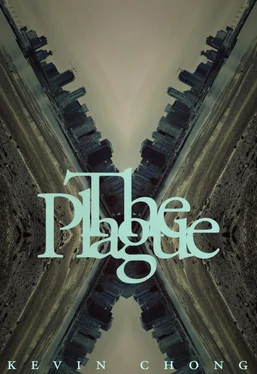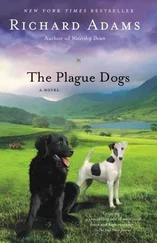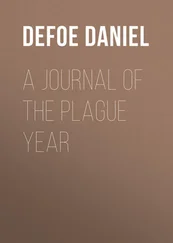Any history contains contradictions. This one had relatively few of them. And this was entirely the result of Dr Bernard Rieux and his steadfast eye. We attempted to honour him in our efforts.
We only resist calling him a hero because Rieux loathed the term. He would say that he could have acted in no other way.
We are bound to the objective truth: he was a doctor, a son, a husband, and our friend.
_________
Many histories benefit from distance. Our collaboration to complete this book, while written in spurts, began shortly after the quarantine was lifted.
The end occurred on the third Sunday that March. When the gates opened at midnight, fireworks were lit across the city—above Coal Harbour, from its highest point in Queen Elizabeth Park, and in backyards, alleys, and unlit parks. Tso was reminded of how loud it was when she’d first arrived in Vancouver that past October.
Siddhu rode in on the SkyTrain on the following Monday. He kept his gaze fixed on the list of stops, even though he could recite them from memory, eyes closed, backwards and forwards. He walked to the coffee bar by the Art Gallery. In only a couple of days, the city had already returned to normal. There were neither too many nor too few people.
Tso was waiting for him with a latte. She put down our coffees and we embraced with the gusto of people who no longer worried that physical contact could kill us.
“How much time do you have?” Tso asked.
Siddhu’s interview with the mayor wasn’t until the afternoon. Tso would fly out that night. She walked with her coffee in one hand, dragging her suitcase with the other. She suggested an ambitious jaunt, and Siddhu agreed to it after some hesitation. He looked forward to stretching his legs but admitted to being in terrible physical condition.
She had seen the news alert on her phone as she waited for our coffees. We strolled up Robson Street. Storefronts remained papered over. In some shop windows mannequins were still arrayed in winter clothes from last year.
We finished our coffees as we entered the Park and walked along the Seawall like proper tourists. There was already a group of people assembled by the Brockton Point Lighthouse.
“I’ve been waiting an hour,” one bearded onlooker in a jean jacket told us.
The transient pod, eight whales in total, was spotted early in the morning from Deep Cove and had made it as far as the Second Narrows Bridge. They were hunting seals. They needed to double back to return to the open ocean.
The air became brisk as we stood by the water—neither Siddhu nor Tso had dressed properly. We spoke about Rieux’s notebook, in part because everything that lay ahead for each of us was so provisional. Like many in the city, we also felt the events of the last few months haunting our consciousness. We needed to talk about it, to inscribe it, to externalize it. Otherwise these events lingered dormant in our bodies, like the bacterium, waiting for an opportunity to re-emerge.
“Did you really have that conversation in the car with Bernard?” Tso asked.
“Which one?” he said, pursing his mouth.
“ You know. I can tell you know.”
His eyes misted over. “It did happen,” he said at last. “Were you surprised?”
“Does it matter?” she asked.
We were caught up in this particular speculation about missed opportunities when we heard gasps from the onlookers who had brought their telescopes and binoculars. We took our places along the stone lip of the wall. The whales came porpoising along the surface of the water as if performing for the whale-watching boats that followed them. A drone drifted up above them, looking silly as they always did. When it crashed into the water, we cheered.
Siddhu had lived all his life in the city and had never seen orcas this close. As a teenager, on a ferry to Vancouver Island, he chose to remain in his seat reading The Stand when the ferry captain announced that orcas had been spotted. Tso had only seen orcas bouncing beach balls on their snouts at Sea World.
“Aren’t you glad we did this?” she asked Siddhu.
Tso chose to believe that the orcas were a sign. They arrived to celebrate her last day in Vancouver. She was reminded of one of the final entries in Rieux’s notebooks. It was a definition of a cetacean-specific term used casually by Dr Orla Castello as a metaphor for the final throes of the outbreak.
A lobtail: when a whale slaps its flukes (the lobes of its tail) against the surface of the ocean, Rieux wrote in his diary. The beginning of the end or the end of the beginning?
Megan Tso waited for the whales to swim past them. She waited. She waited. The whales became specks in her vision, only their dorsal fins clearly visible.
Right before she lost hope, one of those orcas raised its tail in the air and splashed the surface of the water. It was far away, but she could hear the clap in her heart. Goodbye, for now.
My wife Holly.
My students at UBC and SFU, but especially my fiction cohorts at The Writer’s Studio.
John Li, Tom Hunter.
Arsenal Pulp Press: Brian Lam, Susan Safyan, Cynara Geissler, Robert Ballantyne, Oliver McPartlin.
The BC Arts Council and the Canada Council.
Albert Camus.

PHOTO: ANDREW QUERNER
Kevin Chong is the author of six books, including the memoir My Year of the Racehorse and the novel Beauty Plus Pity. His work has been shortlisted for the Hubert Evans Prize for Non-Fiction and a National Magazine Award. His writing has recently appeared in the Walrus, the Rusty Toque, and Cosmonauts Avenue. His books have been published in Canada, the US, France, Australia, and Macedonia. He teaches at the University of British Columbia’s Creative Writing Program and The Writers’ Studio at Simon Fraser University. Born in Hong Kong, he lives in Vancouver with his family.
kevinchong.ca
THE PLAGUE
Copyright © 2018 by Kevin Chong
All rights reserved. No part of this book may be reproduced in any part by any means—graphic, electronic, or mechanical—without the prior written permission of the publisher, except by a reviewer, who may use brief excerpts in a review, or in the case of photocopying in Canada, a license from Access Copyright.
ARSENAL PULP PRESS
Suite 202 – 211 East Georgia St.
Vancouver, BC V6A 1Z6
Canada
arsenalpulp.com
The publisher gratefully acknowledges the support of the Canada Council for the Arts and the British Columbia Arts Council for its publishing program, and the Government of Canada, and the Government of British Columbia (through the Book Publishing Tax Credit Program), for its publishing activities.

This is a work of fiction. Any resemblance of characters to persons either living or deceased is purely coincidental.
Cover Photo by Scott Webb
Cover and text design by Oliver McPartlin
Edited by Susan Safyan
Library and Archives Canada Cataloguing in Publication:
Chong, Kevin, author
The plague / Kevin Chong.
Issued in print and electronic formats.
ISBN 978-1-55152-719-2 (HTML)
1. Camus, Albert, 1913-1960. Peste. I. Title.
PS8555.H648P53 2018C813’.6C2017-907214-5
C2017-907215-3














